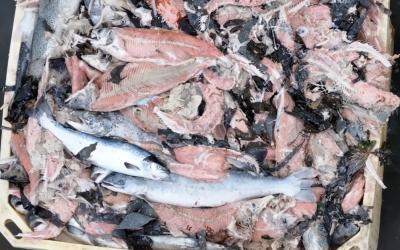
In Scotland nearly 200,000 fish have died after a colony of barbed wire jellyfish (Apolemia uvaria) attacked two farms between late October and early November 2024. The attack, which occurred at farms in Invertote and Muck, has raised alarms about the vulnerability of the salmon farming industry to environmental threats. The Muck site alone lost over 163,000 fish, while Invertote saw the death of 32,000 salmon. In response, workers conducted emergency harvesting to save any surviving fish.
The barbed-wire jellyfish, known for their painful and venomous tentacles, attack prey in a net-like manner, causing severe injuries to farmed salmon. These injuries, including burns to the skin, eyes, and gills, leave the fish susceptible to infection and disease. With salmon trapped in crowded pens, the stings often lead to slow, agonizing deaths if untreated.
This attack follows a similar incident in Norway, where millions of farmed salmon have perished due to jellyfish stings in recent years. Environmental groups, such as the Green Britain Foundation, have used these events to call for stricter regulations on the salmon farming industry. They argue that the open-net farming model exposes fish to such catastrophic risks and stress the need for reforms to protect both the environment and the industry’s long-term sustainability.
The jellyfish threat continues to spread, with ongoing warnings from authorities in both Norway and Scotland.
Sourse: Seafoodsourse / own elaboration 24/01/2025
